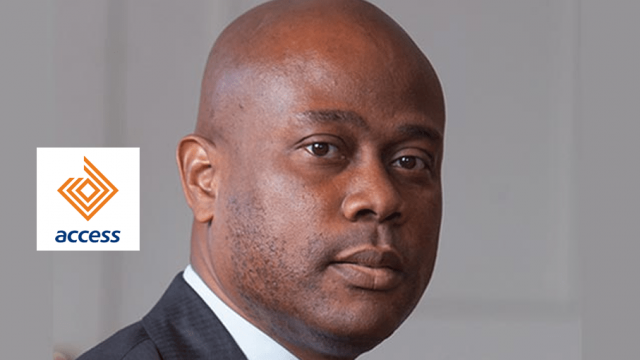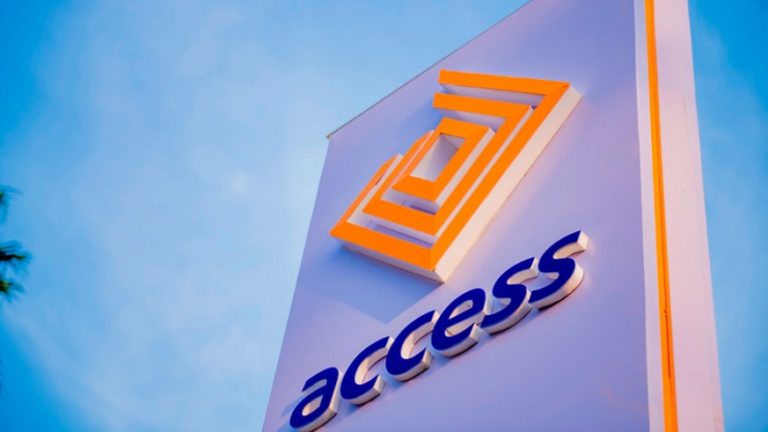


Cliché or not; nothing ventured, nothing gained, is as true as it was yesterday, as it is today, and will be tomorrow, which was the chance or risk that Hebert Onyewumbu Wigwe took when as a teenager he started fiddling with numbers. Little did he know then that he was paving the way to his becoming one of the global leaders in the dynamic, and yet uncertain financial services world.
Regardless of the dynamism and uncertainty, Wigwe managed to make a success of it, and sits proudly as the incumbent Group Managing Director/Chief Executive Officer of Access Bank Plc, a Nigerian multinational bank, he co-founded with his business partner, Aigboje Aig-Imoukhuede.
And why not, Herbert was quoted by KPMG as saying that, “For CEOs to thrive in this fast-paced and dynamic environment they must be digitally and technology savvy, understanding the implications of new technologies for their industries and businesses. They must embrace, seek, and create change with a passion, and be ‘tragile’ in their approach – maintaining the right balance between the traditional way things are done and still be agile.”
Such balancing is probably why Access Bank maintains the word, impossible, does not exist, because the lender is willing to break the bonds using digital technology, machine learning, and artificial intelligence to enhance customer satisfaction and product customisation.
The brand
TODAY, Access Bank is ranked among the top five banks in Nigeria, and has emerged one of the leading banks in Africa, with total assets estimated at about N7.28trillion ($18billion), and ranked among the top 500 banks globally, according to leading business valuation and strategy consultancy, Brand Finance.
Over a 12-year period beginning from when he was the deputy CEO, Herbert has grown Access Bank’s balance sheet by 1022 per cent from $901million in 2007 to $19.7billion in 2019, while pre-tax profits rose to $316million in 2019 from $21million in 2007. The profit before tax recorded in 2007 was more than the cumulative profit made by the Bank in the previous 12 years. This also marked the beginning of what would be a six-year triple-digit growth trend.
In 2019, the Access Bank Group delivered a 26 per cent increase in gross earnings of $1.8billion, from $1.4billion in 2018 comprising interest income growth to $1.4billion in 2019 from $1billion in 2018, a 41 per cent growth from previous levels, despite pressures on risk asset growth within the period.
Furthermore, the Bank recorded a non-interest income growth of $355million (12% y/y). This net effect on operating income resulted in strong profit before tax of $316million against N283million in 2018.
The bank currently serves over 44 million individual and corporate account holders through over 600 branches and more than 3,000 ATMs in major centres across Nigeria, sub-Saharan Africa, and the UK.
Little wonder then that Wigwe was last week named, the ‘African Banker of the Year’ at the 2020 African Banker Awards. This award was practically the topping for his 54th birthday on August 15.
Wigwe was recognised for several socio-economic efforts, including leading Nigeria’s private sector COVID-19 response. Under his leadership, Access Bank donated over $2.7 million to support the government in fighting the virus, while championing the Coalition Against COVID-19 (CACOVID) initiative in Nigeria.
He has advocated other corporate climate change conscious business entities across the country to support the Nigerian Government towards achieving 25 per cent unconditional and/or 40 per cent conditional carbon emission reduction as agreed at the 24th Conference of the Parties to the United Nations Framework Convention on Climate Change.
Receiving his award, Wigwe spoke of the need for organisations to embrace the institutionalization and practice of sustainable banking, saying, “Financing and facilitating a sustainable future for Africa, and indeed the world is something I am most passionate about. Now, more than ever, Africa needs us to unite as we seek to improve access to health care, sustainable energy, finance, and improve the standard of living in our communities. I enjoin all stakeholders to be a part of the facilitation of a truly sustainable future for Africa. The future of our respective organisations and the future of generations to come depend on the alliances we form and the actions we take.”
“Access Bank has taken steps towards facilitating the future I speak of, issuing the first-ever Climate Bonds Initiative (CBI) certified Green Bond in Nigeria, being a focal point in Nigeria’s fight against the novel Coronavirus through the Private Sector Coalition Against COVID-19 (CACOVID), among others. Through innovative banking initiatives and our underlying sustainability drive, we will continue to create shared value for all our stakeholders, striking a balance between competitive advantage and corporate social responsibility,” he concluded.
Herbert is not just winning for himself alone, as under leadership, since assuming office as the CEO on January 1, 2014, the bank had also carted away many other laurels. Access Bank also won the “Agri Deal of the Year,” through the Olam Rice Farm project.
It had earlier won the CBN’s “Sustainable Bank of the Year Award” for three consecutive years;
“Outstanding Business Sustainability Achievement Award” at the Karlsruhe Sustainable Finance Awards in Germany in 2017 – 2019; “Excellence in Women Economic Empowerment” Award in 2017; Euromoney’s “Best ‘Commercial Banking Capabilities’” in 2018; and the “Nigerian HealthCare Excellence Award,” for ‘Outstanding CSR Health Project of the Year in 2018.
Speaking on the Bank’s growth trajectory, Wigwe was once quoted: “In the last twelve months, Access Bank has grown into a powerhouse in the Nigerian and indeed, African banking industry. We are happy with all the successes recorded so far, and we hope to reach and surpass other targets we have set for ourselves. Access Bank will continue on its journey to becoming Africa’s gateway to the world, through strategic expansion into new and emerging markets within and outside Africa and providing a best-in-class customer experience.”
Humble Beginning
NOTHING good comes easy, they say, Herbert prepared his way to the top by first arming himself with the requisite education and skills.
Born in Ibadan, Oyo State on August 15, 1966, to parents of Ikwerre, Rivers State descent, Pastor Shingle Wigwe, who retired as a Director-General at the Nigerian Television Authority (NTA), and mother, Mrs. Wigwe, a nurse, Herbert found his calling in finance at the age of 16. He was said to have developed an interest in social development and community issues at a very early stage in life.
He was said to have always had a head for numbers, a fact he attributed to playing “mental mathematics” with friends while growing up. This game involved solving random mathematical questions; without the aid of a calculator.
He successfully enrolled at the University of Nigeria Nsukka (UNN), in 1983, where he studied Accountancy, graduating with a Second Class Upper honours degree in 1987.
In 1988, He completed the compulsory NYSC programme, he would then land a job with Coopers and Lybrand Associates Limited in Lagos as a graduate assistant and was promoted within a year.
In 1989, Herbert passed his Institute of Chartered Accountants of Nigeria (ICAN) professional examination and moved on to work as a credit analyst at Capital Merchant Bank.
In 1990, Herbert won the British Council Scholarship to study at North Wales University (now Bangor University). He earned his M.A in Banking and Finance in 1991. He returned to Lagos to join the Guaranty Trust Bank, gradually rising through the ranks to become an Executive Director at the age of 32.
Herbert went on to earn an MSc in Financial Economics from the University of London, and later also became an alumnus of the Harvard Business School Executive Management Programme.
To every season there is time, and also it was in 2002 when Herbert answered the lifelong call of entrepreneurship when he and Aigboje set out to acquire a small commercial bank, Access Bank.
He started his professional career with Coopers and Lybrand Associates, an international firm of Chartered Accountants, and later spent over 10 years at Guaranty Trust Bank, where he managed several portfolios including financial institutions, corporate and multinationals. He left Guaranty Trust Bank as an Executive Director to co-lead the transformation of Access Bank Plc in March 2002, as Deputy Managing Director.
Herbert is also the Chairman of Access Bank (UK) Limited, and a Director of the Nigerian Mortgage Refinance Company Plc (NMRC). He has served as the Chairman of Access Bank (Ghana) Limited, Access Investment & Securities Limited, Central Securities and Clearing System (CSCS), and is the current Chairman of Unified Payments Services Limited. He is a member of the advisory Board for Friends Africa, and a Fellow of the Institute of Chartered Accountants of Nigeria (ICAN – FCA), The Institute of Credit Administration, an Honorary Fellow of the Chartered Institute of Bankers of Nigeria, and the Chairman of Body of Bank CEOs in Nigeria.
But Herbert confessed that he couldn’t have achieved all that he did without a supporting family, whom he describes as “his greatest treasure,” and credits his ability to seamlessly balance the busy world of banking and family life, to his wife, Chizoba.
Looking Ahead
THE new normal brought about the COVID-19 pandemic globally, demands, demands constant analytics, innovation, and ingenuity. To this end, Herbert assured that: “Access Bank has taken steps towards facilitating the future I speak of, issuing the first-ever Climate Bonds Initiative (CBI) certified Green Bond in Nigeria, being a focal point in Nigeria’s fight against the novel Coronavirus through the Private Sector Coalition Against COVID-19 (CACOVID), among others.” “Through innovative banking initiatives and our underlying sustainability drive, we will continue to create shared value for all our stakeholders, striking a balance between competitive advantage and corporate social responsibility,” he concluded.




